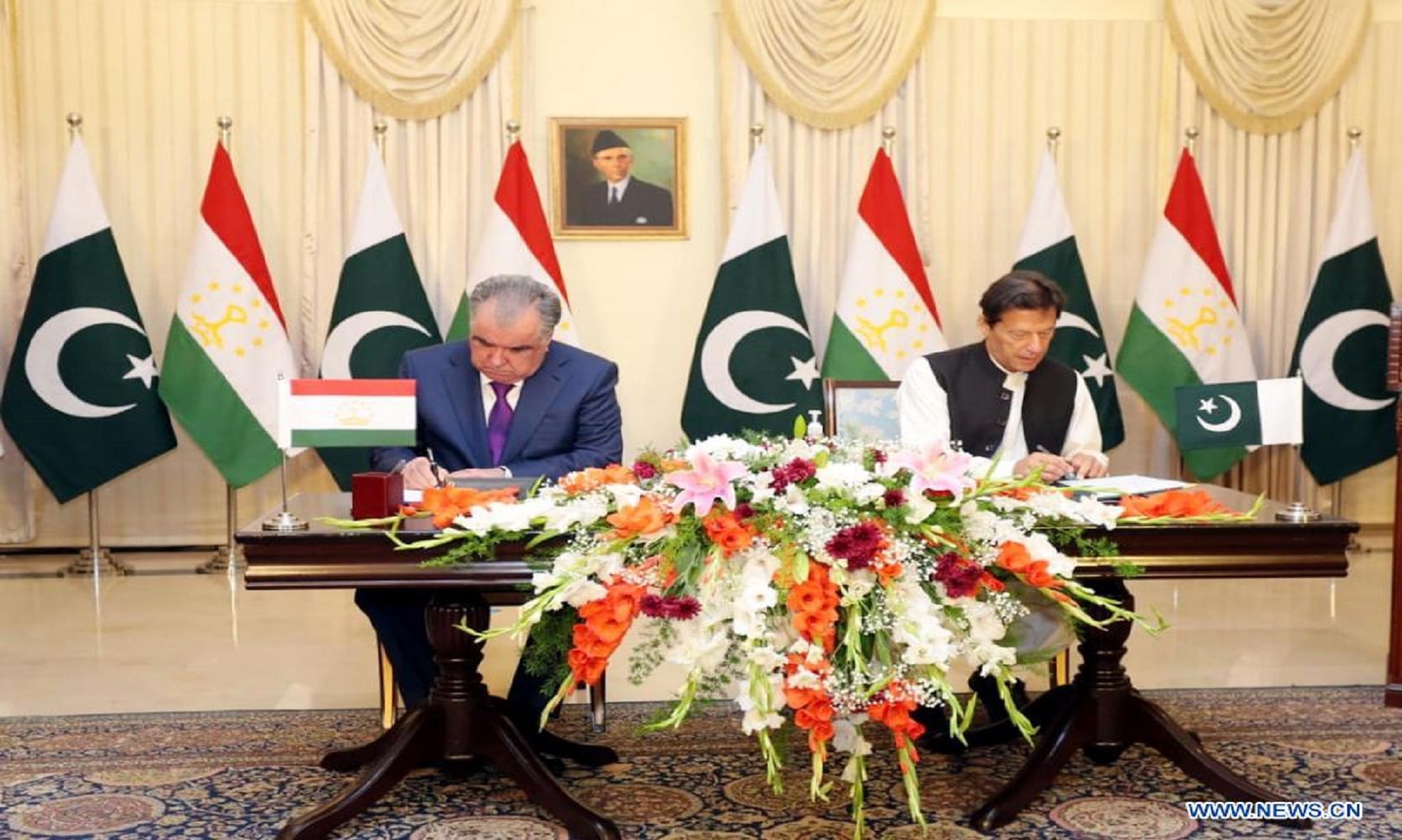ISLAMABAD, Jun 3 (NNN-XINHUA) – Pakistan and Tajikistan agreed here yesterday, to further deepen their bilateral relations in diverse fields, with a special focus on promoting trade and economic cooperation, said a joint declaration issued by the Prime Minister’s Office of Pakistan.
According to the declaration, both sides reached the understanding, during a meeting between Pakistani Prime Minister, Imran Khan, and Tajik President, Emomali Rahmon, where they reaffirmed the fraternal ties between the two countries.
A Tajik delegation, led by Rahmon, arrived at the Pakistani capital Islamabad yesterday, on a two-day visit and held a series of meetings and signed several agreements and memorandums of understanding with the Pakistani side, including cooperation in culture, trade, investment, transport, energy, tourism, education, connectivity, climate change and people-to-people contacts.
Both leaders expressed satisfaction at the steadily growing relations between Pakistan and Tajikistan, and expressed their resolve to elevate bilateral ties to a new level of strategic cooperation, for the mutual benefit of the two countries and peoples.
During the talks, the two sides accorded particular focus to bolstering bilateral economic and trade ties, by exploring new opportunities and avenues and vowed to regularly convene meetings of Pakistan-Tajikistan Joint Commission on Trade, Economic and Scientific-Technical Cooperation.
The leaders also agreed to enhance role of the Joint Business Council, to organise trade exhibitions and business forums on a regular basis and create an investor-friendly environment in the two countries, to encourage and facilitate joint investments.
Khan apprised the visiting president of the operationalisation of the Gwadar port, and offered Tajikistan to avail the facility of Pakistani seaports and the China-Pakistan Economic Corridor (CPEC), and stressed the need to tap the vast potential of trade, energy, connectivity, agriculture and industry for mutual benefit.
The two leaders also agreed to increase bilateral cooperation in the field of defence and security, to overcome the common security challenges and also emphasised the need to enhance cooperation in counter-terrorism, combating cross-border organised crimes and human and drug trafficking.
Both leaders expressed serious concern over COVID-19 and emphasised the importance of international solidarity and cooperation, as well as, joint efforts for affordable and equitable supply and distribution of vaccines to all countries to combat the pandemic effectively.– NNN-XINHUA






